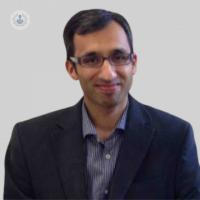Hearing loss: an insightful guide
Written by:In this article below, distinguished consultant ENT surgeon, Mr Abdul Qureshi, discusses the main symptoms and causes of hearing loss, whilst also outlining the main treatment options.

What is hearing loss, and what are the main causes?
Hearing loss is a common condition that affects millions of people worldwide, impacting their ability to communicate, engage in social activities, and enjoy life to the fullest.
There are several causes of hearing loss, including age, genetics, noise exposure, infections, medications, and underlying medical conditions.
What are the various different kinds of hearing loss?
Age-related hearing loss, known as presbycusis, is one of the most common types of hearing loss and typically affects individuals over the age of 65. Noise-induced hearing loss, caused by prolonged exposure to loud sounds, is another prevalent form of hearing loss, affecting people of all ages, particularly those in noisy occupations or recreational environments.
What are the associated symptoms?
The symptoms of hearing loss can vary depending on the cause and severity of the condition, but may include difficulty understanding speech, asking others to repeat themselves, turning up the volume on electronic devices, withdrawing from social situations, and experiencing ringing or buzzing noises in the ears (tinnitus).
What are the treatment options available for hearing loss?
One of the most common treatments for hearing loss is the use of hearing aids, small electronic devices worn in or behind the ear that amplify sound and improve speech comprehension. Hearing aids come in a variety of styles and technologies to suit individual preferences and hearing needs, ranging from basic models to advanced digital devices with noise reduction and connectivity features.
In cases of severe or profound hearing loss, cochlear implants may be recommended. These surgically implanted devices bypass damaged portions of the inner ear and stimulate the auditory nerve directly, allowing individuals to perceive sound and speech more effectively. Cochlear implants are particularly beneficial for individuals with sensorineural hearing loss who do not benefit from hearing aids.
In addition to assistive devices, other treatment options for hearing loss may include auditory rehabilitation, which involves therapy to improve listening skills and communication strategies, and medical interventions such as surgery or medication to address underlying medical conditions contributing to hearing loss.
If you are worried about hearing loss, you can book an appointment today with Mr Abdul Qureshi by visiting his Top Doctors profile today.


